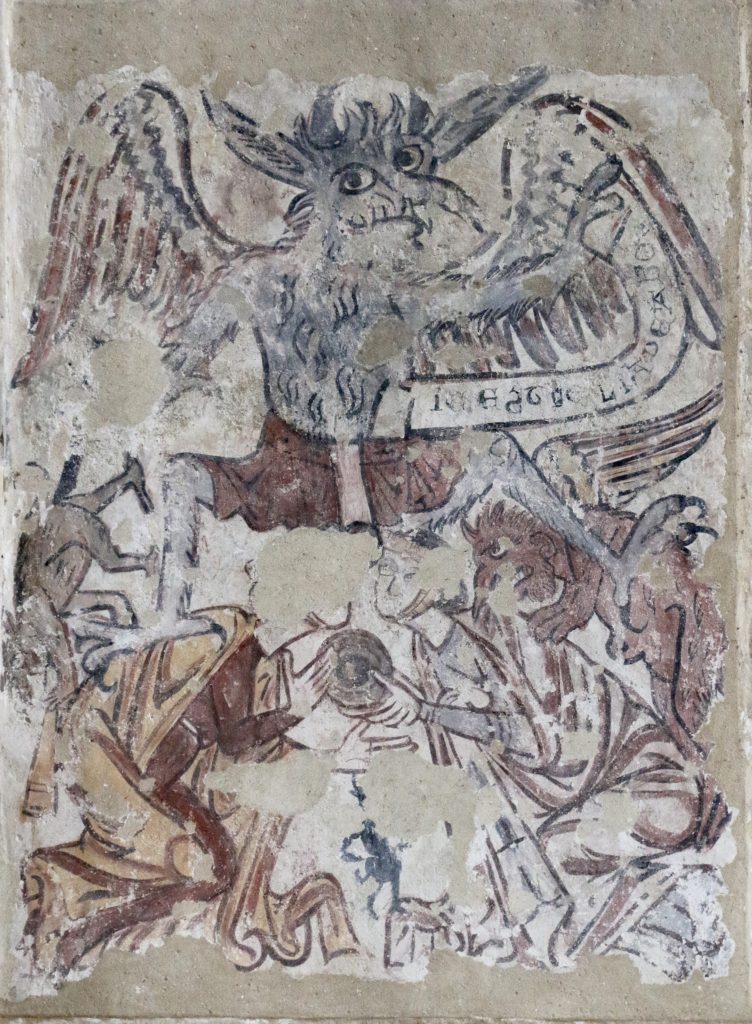Titivillus was a demon said to work on behalf of Belphegor, Lucifer or Satan to introduce errors into the work of scribes. The first reference to Titivillus by name occurred in Tractatus de Penitentia, c. 1285, by Johannes Galensis (John of Wales). Attribution has also been given to Caesarius of Heisterbach. Titivillus has also been described as collecting idle chat that occurs during church service, and mispronounced, mumbled or skipped words of the service, to take to Hell to be counted against the offenders.
. . .
Marc Drogin noted in his instructional manual Medieval Calligraphy: Its history and technique (1980) “for the past half-century every edition of The Oxford English Dictionary has listed an incorrect page reference for, of all things, a footnote on the earliest mention of Titivillus.”
Titivillus gained a broader role as a subversive figure of physical comedy, with satirical commentary on human vanities, in late medieval English pageants, such as the Iudicium that finishes the Towneley Cycle. He plays an antagonistic role in the Medieval English play Mankind.
In an anonymous fifteenth-century English devotional treatise, Myroure of Oure Ladye, Titivillus introduced himself thus (I.xx.54): “I am a poure dyuel, and my name ys Tytyvyllus … I muste eche day … brynge my master a thousande pokes full of faylynges, and of neglygences in syllables and wordes.”
